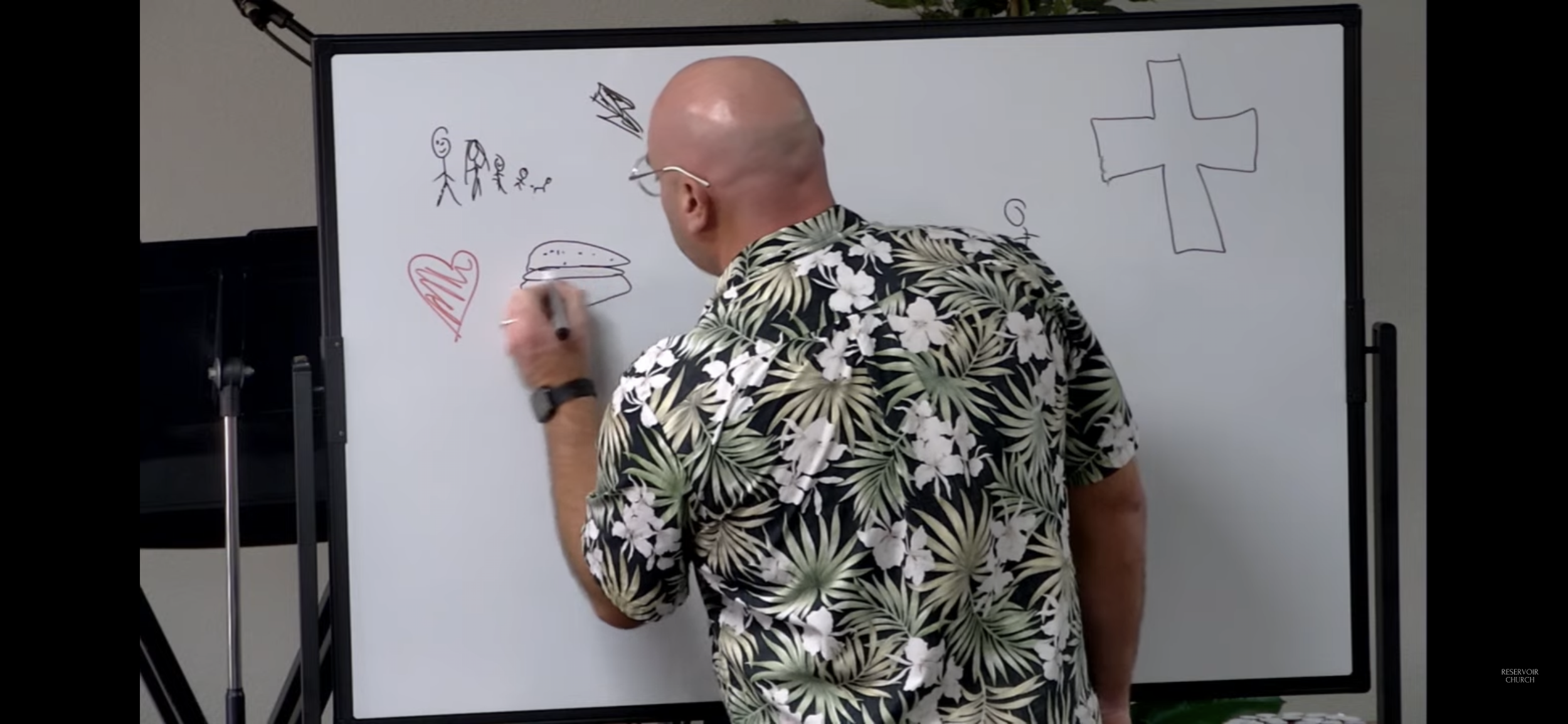
PREACHING AT RESERVOIR
The Kingdom is Yours
Jonathan Shradar preaches on Luke 6:17-26. Jesus is for those who have nothing but him.
Sermon notes.
Think about it…
What does this blessing for those poor, hungry, weeping show us of how we come to Christ?
What are the things we tend to rely on in our day for hope? How can we run after them less and turn to Christ more?
Is it exaggerating to say we have "nothing other than Jesus?"
What does life look like when you recognize the Kingdom is yours, and your future is incredibly bright?
How does the reality of our need for rescue and the gift of the Kingdom propel us to invite others to come?
Joy and Freedom
Jonathan Shradar preaches on Luke 5:33-6:11. The way of Jesus is anchored by joy and freedom.
Sermon notes.
Think about that…
Why is it so easy to approach things of faith with gloom versus joy?
How does the finished work of Jesus spur joy in our hearts? How do we healthfully mourn, lament, face anxiety and sadness, while still grasping this joy?
How does the freedom of forgiveness incite new living and good works in us?
What do joy and freedom look like in our daily lives? What about in the life of the church?
Archive
- 1 Corinthians 31
- 1 Peter 1
- 2 Corinthians 22
- 2 Kings 1
- Acts 41
- Advent 33
- Awkward 6
- Body Life 5
- Dear Church Revelation 7
- Easter 1
- Ephesians 24
- Esther 1
- Exodus 11
- Galatians 18
- Genesis 13
- I Am 6
- Isaiah 47
- John 6
- Kingdom Ethic 10
- Luke 31
- Minor Prophets 15
- Numbers 32
- Psalms 22
- Revelation 1
- Romans 32
- Stand Alone 34
- Titus 6
- We Are 4
- We Are Grace Church 2
Friends of Sinners
Jonathan Shradar preaches on Luke 5:1-31. No one is left the same after encountering Jesus.
Sermon notes.
Think about that…
How does Jesus comfort his people today? Why is it important to have a correct understanding of his heart for us?
Why is forgiveness essential in our flourishing?
In what ways might Jesus use your life, your work, as a platform for his teaching?
What does it mean for us to "leave everything" and follow him?
How can the community of believers challenge each other onward in following Jesus and making him known?
He is What He Does
Jonathan Shradar preaches on Luke 4:14-44. What Jesus did determines who we are and who he is determines what we do.
Sermon notes
Think about that…
Why is it significant that Jesus is claiming a section of Isaiah for himself? How does he live out who he says he is?
These descriptions (poor, blind, oppressed) have both spiritual and physical dimensions. Why is it dangerous to only see one dimension (physical or spiritual)?
As followers of Jesus do we really have to be about these same things? Can't we just experience his grace personally and privately? Check out Philippians 2:5-11 for an early creed of the Christian life. How does this inform how we live?
Who are the forgotten or unseen around you that the Lord might be calling you to minister to? How can we partner with you in that?




